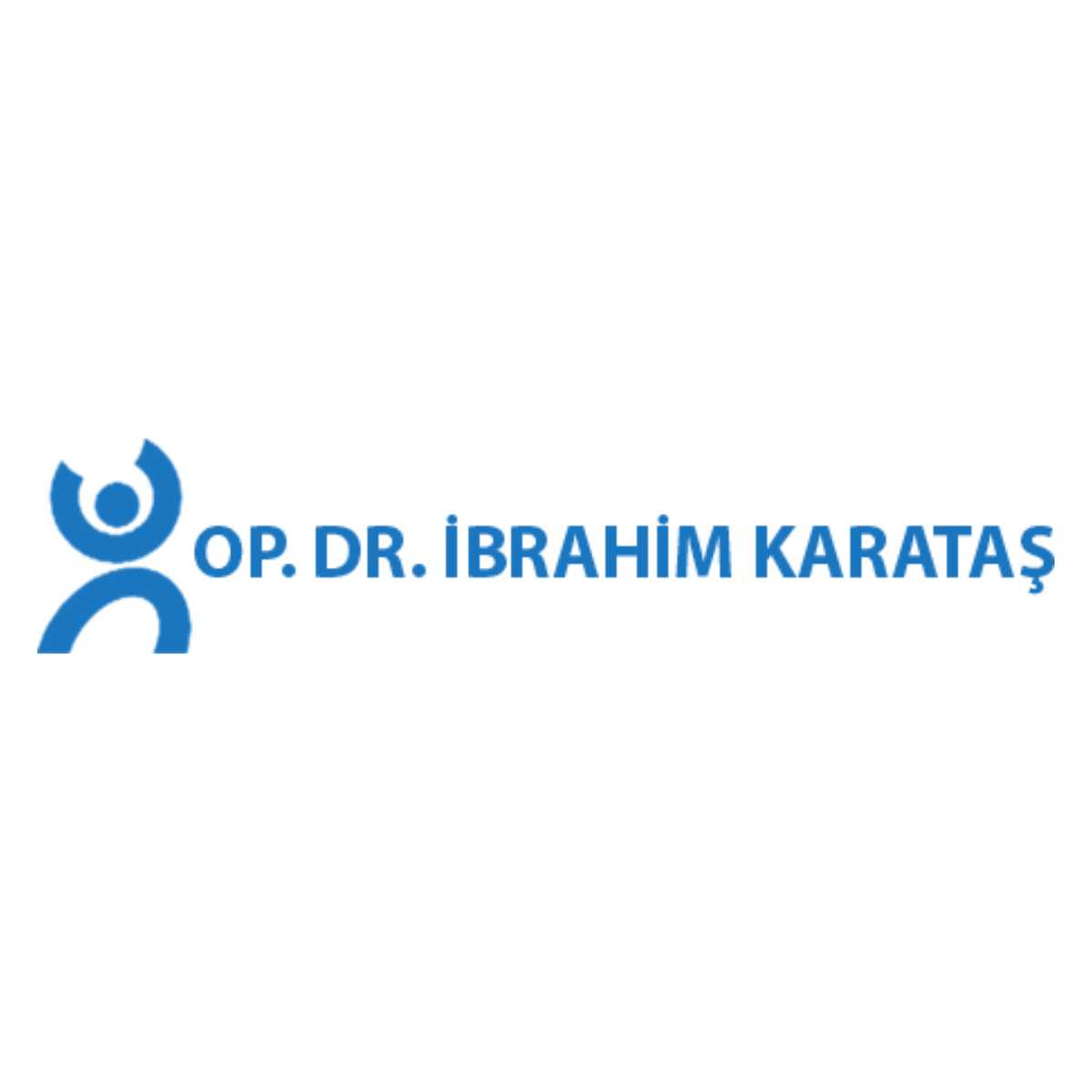Overview: Gastroplasty vs Gastric Sleeve in Turkey
.jpg)
Welcome to your guide on understanding weight loss surgery options, specifically focusing on the differences between gastroplasty and gastric sleeve procedures, especially when considering medical tourism in Turkey. If you're exploring solutions for significant weight loss and improved health, you've likely come across various surgical interventions.
Two common procedures, gastroplasty and gastric sleeve, are often discussed, but their distinctions are crucial for making an informed decision. Turkey has emerged as a leading destination for bariatric surgery, attracting international patients with its high-quality care, experienced surgeons, and cost-effective treatments.
This makes understanding these differences even more important for those planning their medical journey. Deciding on the right weight loss surgery is a personal journey that requires careful consideration of the procedure's mechanics, long-term implications, and your health goals.
This comprehensive guide will break down gastroplasty and gastric sleeve, highlighting their unique approaches, benefits, potential risks, and recovery processes.
We'll also delve into why Turkey is a preferred choice for many seeking these life-changing operations, covering aspects like cost, clinic selection, and the overall patient experience. By the end, you'll have a clearer picture of which procedure might be best suited for you and what to expect when choosing Turkey for your weight loss surgery.
What is Gastroplasty?
Gastroplasty, often referred to as vertical banded gastroplasty (VBG), is a restrictive weight loss surgery designed to limit the amount of food a patient can consume. The procedure involves creating a small pouch in the upper part of the stomach near the esophagus.
This is achieved by stapling the stomach, forming a small opening (stoma) at the bottom of the pouch, which is often reinforced with a band to prevent stretching. Unlike other bariatric surgeries, gastroplasty does not involve rerouting the intestines or removing any part of the stomach.
The primary mechanism of weight loss with gastroplasty is restriction. Patients feel full much faster after eating only a small amount of food because the new, smaller stomach pouch can hold less. The band also helps to slow down the passage of food, contributing to a feeling of satiety.
While once a common procedure, its popularity has decreased over time due to certain limitations and potential long-term complications, such as band erosion or stretching of the pouch, which can lead to weight regain. However, understanding gastroplasty provides a valuable comparison point when evaluating modern bariatric options like gastric sleeve in Turkey.
What is Gastric Sleeve Surgery (Sleeve Gastrectomy)?
Gastric sleeve surgery, medically known as sleeve gastrectomy, is currently one of the most popular and effective weight loss surgeries worldwide, including in Turkey. This procedure involves permanently removing a large portion of the stomach, typically about 75-80%, leaving behind a banana-shaped "sleeve" or tube.
Unlike gastroplasty, gastric sleeve is an irreversible procedure because stomach tissue is removed. The gastric sleeve works through two main mechanisms. Firstly, by significantly reducing the size of the stomach, it severely limits the amount of food that can be consumed at one time.
Patients feel full quickly and eat less. Secondly, the removal of the fundus, the upper curved part of the stomach, also removes a significant portion of the cells that produce ghrelin, often referred to as the "hunger hormone."
This reduction in ghrelin levels can lead to a decrease in appetite, making it easier for patients to adhere to a post-surgical diet and achieve sustainable weight loss. The gastric sleeve in Turkey is highly sought after due to its effective results and the expertise of Turkish surgeons.
What are the Key Differences Between Gastroplasty and Gastric Sleeve?
The fundamental difference between gastroplasty and gastric sleeve lies in their surgical approach and resulting physiological changes. While both aim to reduce food intake, they achieve this through distinct methods.
| Feature | Gastroplasty (VBG) | Gastric Sleeve (Sleeve Gastrectomy) |
|---|---|---|
| Stomach Modification | Staples stomach to create a small pouch and an outlet opening, often reinforced with a band. No part of the stomach is removed. | About 75-80% of the stomach is permanently removed, leaving a banana-shaped tube. |
| Reversibility | Potentially reversible (staples/band can be removed, though not always restoring full stomach function). | Irreversible, as stomach tissue is permanently removed. |
| Mechanism of Weight Loss | Primarily restrictive (limits food intake). | Restrictive (limits food intake) and hormonal (reduces ghrelin, the hunger hormone). |
| Impact on Hunger | Limited impact on hunger hormones. | Significantly reduces hunger sensation due to ghrelin reduction. |
| Long-Term Efficacy | Historically associated with higher rates of weight regain due to pouch stretching or band complications. | Generally provides excellent long-term weight loss and resolution of co-morbidities. |
Gastroplasty primarily relies on mechanical restriction, whereas gastric sleeve offers both mechanical restriction and significant hormonal changes that impact appetite. This dual action is a major reason why gastric sleeve has largely replaced gastroplasty as a preferred primary bariatric surgery. For patients considering weight loss surgery in Turkey, understanding these distinct approaches is vital for making an informed choice with their medical team.
Who is a Suitable Candidate for Gastric Sleeve in Turkey?
Determining suitability for gastric sleeve surgery involves a comprehensive evaluation of a patient's health, weight history, and commitment to lifestyle changes. Generally, the criteria for gastric sleeve surgery are similar across most international medical standards, including those followed by clinics in Turkey. Here are the common criteria for gastric sleeve candidacy:
- BMI of 40 or higher: This is for individuals who are extremely obese.
- BMI of 35-39.9 with co-morbidities: This includes individuals who are obese and suffer from at least one significant obesity-related health condition, such as:
- Type 2 Diabetes
- High Blood Pressure (Hypertension)
- Severe Sleep Apnea
- High Cholesterol (Dyslipidemia)
- Osteoarthritis
- Unsuccessful non-surgical weight loss attempts: Candidates should have a history of trying to lose weight through diet and exercise programs without long-term success.
- Commitment to lifestyle changes: A willingness to adopt significant and permanent changes in diet, exercise, and lifestyle post-surgery is crucial for success.
- Psychological readiness: Patients should undergo a psychological evaluation to ensure they are mentally prepared for the surgery and the profound lifestyle changes required.
Turkish clinics offer thorough pre-operative assessments to ensure patients meet these guidelines and are good candidates for a gastric sleeve procedure, prioritizing patient safety and long-term success.
What are the Benefits of Choosing Turkey for Weight Loss Surgery?
Turkey has become a global hub for medical tourism, particularly for bariatric surgeries like the gastric sleeve. Several compelling factors draw patients from around the world to its clinics. These benefits include:
- Cost-Effectiveness: One of the primary drivers is the significantly lower cost of procedures compared to Western Europe, the UK, or North America, often without compromising on quality.
- High Standard of Care: Many Turkish hospitals are internationally accredited (e.g., JCI accreditation) and boast state-of-the-art technology, modern operating rooms, and luxurious patient rooms.
- Experienced Surgeons: Turkey has a large pool of highly skilled bariatric surgeons who have extensive experience performing these procedures, often having trained internationally.
- Minimal Waiting Times: Unlike in some public healthcare systems, patients can typically schedule their surgery much faster in Turkey, allowing for quicker access to treatment.
- Comprehensive Packages: Many clinics offer all-inclusive packages covering surgery, accommodation, airport transfers, and post-operative care, simplifying the patient journey.
- Cultural Experience: Patients can combine their medical trip with a cultural holiday, recovering in a beautiful and historically rich country.
For these reasons, selecting Turkey for a gastric sleeve procedure or other weight loss surgeries provides a compelling blend of quality, affordability, and convenience.
How Much Does Gastric Sleeve Cost in Turkey Compared to Other Countries?
The cost of gastric sleeve surgery is a major consideration for many patients, and this is where Turkey truly stands out. The price difference compared to Western countries is substantial, making it an attractive option for those without comprehensive insurance coverage or seeking more affordable solutions. Here's a general comparison of gastric sleeve costs:
| Country | Estimated Cost Range (USD) |
|---|---|
| Turkey | $4,000 - $8,000 |
| United States | $15,000 - $25,000 |
| United Kingdom | $10,000 - $20,000 (approx. £8,000 - £15,000) |
| Canada | $10,000 - $15,000 (if not covered by public health) |
| Western Europe (e.g., Germany, France) | $10,000 - $18,000 |
These prices in Turkey typically include the surgeon's fee, anesthesiologist's fee, hospital stay, pre-operative tests, and sometimes even accommodation and airport transfers as part of a package. This transparent and all-inclusive pricing structure further enhances Turkey's appeal for medical tourists seeking gastric sleeve surgery.
What is the Recovery Like for Gastric Sleeve Surgery?
Recovery from gastric sleeve surgery is a process that requires patience and strict adherence to post-operative guidelines. The initial phase is critical for healing and adapting to the new stomach size. Here’s a general overview of the recovery process:
- Hospital Stay: Typically 2-3 days in a Turkish hospital. During this time, you'll be monitored for any complications, pain management will be administered, and you'll start on clear liquids.
- First Few Weeks (1-4 weeks post-op):
- Diet Progression: This is a crucial phase, starting with clear liquids, moving to full liquids (protein shakes, thin soups), then pureed foods, and eventually soft solids. This progression typically takes 4-6 weeks.
- Pain Management: Mild to moderate pain at incision sites is common and managed with prescribed medication.
- Activity: Light walking is encouraged to prevent blood clots, but strenuous activities and heavy lifting are avoided. Most patients can return to light work or daily activities within 2-4 weeks.
- Long-Term Recovery (Months 2-6 and beyond):
- Dietary Adjustments: Patients learn to eat small, frequent meals, chew food thoroughly, and avoid high-sugar or high-fat foods. Lifelong vitamin and mineral supplementation is essential.
- Exercise Routine: A gradual increase in physical activity is vital for weight loss and overall health.
- Follow-up Appointments: Regular check-ups with your surgeon and a dietitian are important to monitor progress, address concerns, and ensure optimal health. Many clinics in Turkey offer remote follow-up options for international patients.
The overall recovery timeline varies for each individual, but adherence to medical advice is key for successful outcomes.
What are the Potential Risks and Complications of Gastric Sleeve Surgery?
Like any major surgical procedure, gastric sleeve surgery carries potential risks and complications. While bariatric surgery in Turkey is generally safe due to high standards and experienced professionals, patients should be aware of these possibilities. Common risks associated with gastric sleeve include:
- Staple Line Leaks: This is a serious but rare complication where digestive fluids leak from the staple line of the newly formed stomach sleeve. It requires immediate medical intervention.
- Bleeding: Internal bleeding can occur at the surgical site.
- Infection: As with any surgery, there's a risk of infection at the incision sites or internally.
- Blood Clots: Deep vein thrombosis (DVT) or pulmonary embolism (PE) can occur, although preventative measures like blood thinners and early mobilization are used.
- Nutritional Deficiencies: Due to reduced food intake and changes in digestion, patients are at risk of deficiencies in vitamins and minerals (e.g., B12, iron, calcium, vitamin D), requiring lifelong supplementation.
- Gastroesophageal Reflux Disease (GERD): Some patients may experience new or worsened acid reflux symptoms after surgery.
- Stricture: Narrowing of the sleeve can sometimes occur, making it difficult to eat.
- Weight Regain: While less common than with some other procedures, it is possible for patients to regain weight if they do not adhere to lifestyle changes.
Reputable clinics in Turkey provide thorough pre-operative assessments and detailed discussions about these risks, ensuring patients are fully informed before proceeding with gastric sleeve surgery.
What Long-Term Results Can Be Expected from Gastric Sleeve Surgery?
The long-term results of gastric sleeve surgery are generally very positive for patients who commit to the necessary lifestyle changes. It's not just about weight loss, but also about the profound impact on overall health and quality of life. Key long-term outcomes typically include:
- Significant Weight Loss: Most patients achieve 60-70% excess weight loss within 12-18 months post-surgery. While some weight regain can occur over many years, maintaining healthy habits can sustain long-term success.
- Resolution or Improvement of Co-morbidities: Gastric sleeve often leads to:
- Type 2 Diabetes: Remission or significant improvement in blood sugar control.
- High Blood Pressure: Reduction in blood pressure, often eliminating the need for medication.
- Sleep Apnea: Resolution or significant improvement in symptoms.
- High Cholesterol: Improved lipid profiles.
- Joint Pain: Alleviation of pain due to reduced stress on joints.
- Improved Quality of Life: Patients often report increased energy levels, improved mobility, better self-esteem, and greater participation in social and physical activities.
- Sustained Lifestyle Changes: Long-term success is heavily dependent on the patient's commitment to a healthy diet, regular exercise, and adherence to vitamin supplementation and follow-up care.
These positive outcomes highlight why gastric sleeve in Turkey is a popular choice for those seeking a durable solution to obesity and its related health issues.
How Do I Choose the Right Clinic for Bariatric Surgery in Turkey?
Selecting the right clinic and surgeon for your gastric sleeve or other bariatric surgery in Turkey is paramount to ensuring a safe and successful outcome. With many options available, a thorough vetting process is essential. Consider the following factors:
- Surgeon's Qualifications and Experience:
- Look for surgeons who are board-certified and specialize in bariatric surgery.
- Inquire about their experience specifically with gastric sleeve procedures and their success rates.
- Check if they are members of international bariatric surgery associations.
- Hospital Accreditation:
- Prioritize hospitals with international accreditations, such as Joint Commission International (JCI), which signifies adherence to global standards of quality and patient safety.
- Ensure the hospital has modern facilities and equipment.
- Comprehensive Care and Packages:
- Choose clinics that offer all-inclusive packages covering pre-operative consultations, the surgery itself, hospital stay, medication, and follow-up care.
- Clarify what is and isn't included in the quoted price.
- Post-Operative Support:
- Long-term success depends on ongoing support. Inquire about post-operative dietary guidance, psychological support, and how follow-up appointments are handled for international patients (e.g., via telemedicine).
- Patient Testimonials and Reviews:
- Read reviews and testimonials from previous international patients to gauge their experiences with the clinic and surgical team.
- Look for consistent positive feedback regarding communication, care quality, and outcomes.
- Communication:
- Ensure the clinic has dedicated international patient coordinators who can communicate effectively in English and assist with logistics, from initial inquiry to post-op care.
By carefully evaluating these points, you can confidently choose a reputable clinic in Turkey for your weight loss surgery.
Is Medical Tourism for Bariatric Surgery in Turkey a Safe Option?
The safety of medical tourism, particularly for complex procedures like bariatric surgery, is a common concern for international patients. When it comes to Turkey, the answer is overwhelmingly positive, provided due diligence is exercised in clinic selection. Here's why medical tourism for bariatric surgery in Turkey is considered safe:
- High Medical Standards: Many hospitals in major cities like Istanbul and Izmir are accredited by international bodies such as the Joint Commission International (JCI). This accreditation indicates that the hospitals meet rigorous global standards for patient care and safety.
- Skilled Professionals: Turkish surgeons and medical staff often have extensive training and experience, with many having studied or worked in leading medical institutions across Europe and the US. Their high volume of bariatric cases also contributes to their expertise.
- Advanced Technology: Turkish clinics frequently invest in the latest medical technologies and surgical equipment, ensuring procedures are performed with precision and efficiency.
- Comprehensive Patient Care: Reputable clinics offer robust pre-operative evaluations, detailed surgical planning, and structured post-operative care, including dedicated patient coordinators who assist international visitors every step of the way.
- Government Oversight: The Turkish Ministry of Health regulates medical facilities, ensuring a baseline level of quality and safety across the healthcare system.
While no surgery is without risk, choosing a well-established, accredited facility with a proven track record significantly mitigates concerns, making Turkey a reliable destination for gastric sleeve and other weight loss surgeries.
What Should I Pack for Bariatric Surgery in Turkey?
Preparing for a medical trip abroad involves thoughtful packing to ensure comfort and convenience during your stay in Turkey. Beyond your regular travel essentials, consider specific items for bariatric surgery recovery. Here’s a checklist of items often recommended:
- Comfortable Clothing:
- Loose-fitting, soft clothing (e.g., sweatpants, stretchy shorts, oversized t-shirts, nightgowns).
- Slip-on shoes or comfortable sneakers, as bending over might be difficult initially.
- A light jacket or cardigan, as hospital temperatures can vary.
- Personal Care Items:
- Your usual toiletries (toothbrush, toothpaste, shampoo, conditioner, moisturizer).
- Unscented products are often preferred in hospitals.
- Lip balm to combat dry lips.
- Medication and Supplements:
- Any regular medications you take (with your doctor's approval to continue them).
- Over-the-counter pain relievers (check with your surgeon first).
- Your bariatric protein supplements or a shaker bottle if you have a preferred brand for post-op use.
- Entertainment and Comfort:
- Books, e-reader, tablet, or laptop for entertainment during recovery.
- Headphones for privacy.
- Phone charger and a universal travel adapter.
- A small pillow or rolled blanket for abdominal support during car rides or coughing.
- Important Documents:
- Passport and visa (if required).
- Travel insurance documents.
- Copies of all medical records, lab results, and surgeon communications.
- Clinic contact information and emergency numbers.
- Hydration Aids:
- A small, easy-to-hold water bottle for continuous sipping.
Packing mindfully will contribute to a smoother and more comfortable recovery experience after your gastric sleeve in Turkey. Are you ready to explore safe, affordable, and high-quality bariatric surgery options like gastric sleeve in Turkey? Discover comprehensive medical tourism solutions and connect with world-class clinics and surgeons through PlacidWay.




.png)




.png)
.png)
.png)
.png)






Share this listing